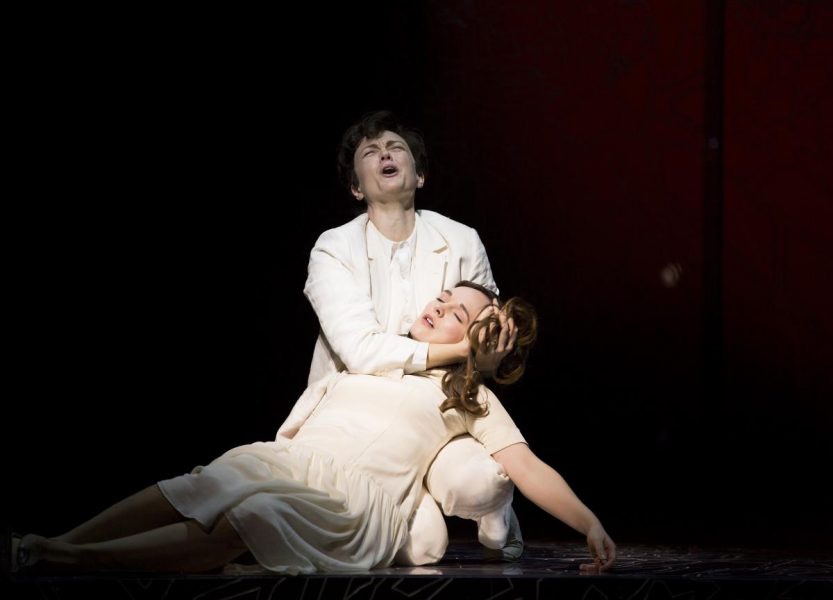@ Festival Theatre, Edinburgh, until Sat 7 Mar 2015
Giving in to temptation can be fatal. From the moment Eve bit the apple, sin was created and we as humans became imperfect. In Greek mythology, this theme recurs from Icarus to Pandora and Orpheus. But Orpheus is a renowned singer and musician. His talent is what ultimately convinces Hades to return his wife, Eurydice, from the Underworld, despite failing to resist temptation.
Scottish Opera’s production of Christoph Willibald Gluck’s Orfeo ed Euridice contrasts the baroque-infused score with a contemporary aesthetic. Sung in Italian (with surtitles), the three main characters are accompanied by a chorus and troop of dancers. Dance is used to set each scene and the chorus drive the plot.
When Euridice (Lucy Hall) dies, her husband Orfeo (Caitlin Hulcup) can’t bear the grief. While mourning his beloved, he makes a deal with Amore (Ana Quintans) that Euridice will be brought back to life, so long as he doesn’t look at her. Orfeo’s passion and desperation leads him on a journey to the Gates of Hades and the Elysian Fields to reclaim his lover.
Former Artistic Director of Scottish Ballet, Ashley Page’s production is a visual feast, perhaps so visual that it distracts from the music rather than enhancing it. The late Johan Engels’ design features bright and bold coloured backdrops, quirky costumes and, centre stage, a large clear cube that revolves, signifying the passage of time and each destination on Orfeo’s journey. While it may look good, it stagnates the movement and makes too obvious what the music does subtly.
The opera begins – almost like the Wizard of Oz – in monochrome, the lovers in white against the chorus-cum-funeral party in black. This is broken by the entrance of Amore – a Grace Kelly-esque figure – that brings her pink polka-dot skirt, Orfeo’s deal with the devil and the journey into the bright, visceral colours of the Underworld.
Orpheo gives in; how can he not? His lament is heard by Amore who takes pity and restores Euridice to life again. They celebrate with a cocktail party. Perhaps it is a sign of modern times: to surrender to inner desires isn’t fatal or punishable, it’s human, it’s what keeps us alive.
However, as lush and colourful as it all is, the visual elements of the production jar with and ultimately thwart the power of the music.
